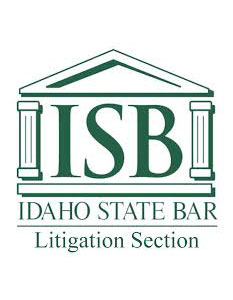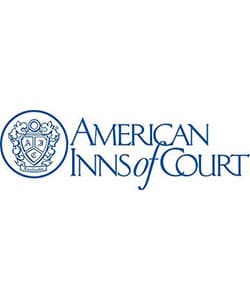Dram shop laws in Idaho play a significant role in the legal landscape surrounding alcohol-related accidents. When someone is injured or killed by an intoxicated individual, the person or business that served alcohol to that individual may also be held liable. This kind of liability is known as “dram shop liability.” In Idaho, these laws are designed to hold bars, restaurants, or other establishments accountable if they overserve alcohol to a visibly intoxicated person, who later causes harm to others. However, just because a dram shop claim is brought does not mean the establishment will automatically be found responsible. There are several defenses that may be available to the defendant in these cases. At, Hepworth Holzer, LLP , we are here to guide you through the legal process and help you navigate the complexities of your case
Understanding these defenses can be crucial in a dram shop liability case. It is important to explore how establishments might defend themselves against these claims and what the court will consider in determining liability. By knowing how these defenses operate, it becomes clear that dram shop cases are not always straightforward, and there are various factors that can influence the outcome.
Idaho Dram Shop Liability Basics
In Idaho, dram shop laws can be found under Idaho Code section 23-808. This law allows victims who have been injured by an intoxicated person to pursue legal action against establishments that may have overserved alcohol. The key issue in most dram shop cases is whether the establishment served alcohol to someone who was visibly intoxicated.
For an injured party to successfully bring a dram shop case, they must typically prove that the establishment served alcohol to a visibly intoxicated person and that the intoxication led to the injury or death in question. This is often more challenging than it might seem because proving visible intoxication can be subjective, and the evidence to support such a claim might not always be clear-cut.
This is where potential defenses come into play. Establishments facing dram shop liability have a range of defenses they might assert to avoid being held responsible. By exploring these defenses, we gain a deeper understanding of the complexities involved in such cases.
The Defense of Visible Intoxication
One of the primary defenses in Idaho dram shop cases is to challenge the claim that the individual was “visibly intoxicated” when they were served alcohol. For an establishment to be held liable, it must be shown that the person who caused the injury was noticeably drunk at the time they were served. This can involve physical signs such as slurred speech, stumbling, or erratic behavior.
The defense may argue that the person who caused the accident was not displaying any obvious signs of intoxication when they were served. Witness testimony, surveillance footage, and even opinions may be presented to support the argument that the individual did not appear drunk at the time. If the establishment can prove that there were no visible signs of intoxication, they may successfully defend themselves against the claim.
For example, if an employee of the bar testifies that the person in question appeared to be functioning normally and was not showing any outward signs of being drunk, this defense could be persuasive. Since visible intoxication is a key factor in dram shop cases, disproving it can be a strong defense.
Proving Causation
Another defense that may be raised in Idaho dram shop liability cases is the issue of causation. For an establishment to be held liable, there must be a direct link between the intoxication and the injury that occurred. In other words, the plaintiff must prove that the establishment’s decision to serve alcohol directly caused the injury or death.
Defendants may challenge this by arguing that other factors, beyond the alcohol served at their establishment, contributed to the accident. For instance, the defendant might argue that the individual had consumed alcohol elsewhere before or after visiting their establishment, making it difficult to pinpoint where the intoxication truly originated. If the defendant can successfully show that their actions did not directly cause the intoxication or that other factors played a more significant role, they may avoid liability.
In some cases, toxicology reports may be introduced to show that the intoxicated person had an extremely high blood alcohol content (BAC) that could not have been reached solely through alcohol consumed at the defendant’s establishment. This type of defense can make it harder for the plaintiff to prove causation, which is essential for a successful dram shop claim.
Comparative Negligence
Idaho follows a rule of comparative negligence, which can also be used as a defense in dram shop cases. Comparative negligence means that if the injured party is found to be partly responsible for their own injuries, the amount of damages they are able to recover may be reduced by the percentage of their fault.
In a dram shop case, the defense may argue that the injured person contributed to their own injuries in some way. For example, they might claim that the injured person was not wearing a seatbelt at the time of the accident or that they were engaging in reckless behavior that increased the likelihood of an accident. If the court finds that the injured party was partially at fault, the establishment’s liability may be reduced accordingly.
Rules of a Personal Injury Claim Choosing a Personal Injury AttorneyRelated Videos
In addition, if the intoxicated person who caused the accident is also injured, their own fault may come into play. The defendant could argue that the intoxicated person was responsible for their own injuries due to their decision to drive or engage in dangerous activities while drunk. This defense could limit the establishment’s liability in cases where the intoxicated person is seeking damages for their own injuries.
The “Safe Harbor” Defense
Idaho law provides certain “safe harbor” protections for establishments that have taken reasonable steps to prevent overserving alcohol. If an establishment can demonstrate that they have implemented training programs for their employees, followed proper serving protocols, and taken measures to prevent serving visibly intoxicated patrons, they may be able to claim this defense.
For example, if a bar can show that they trained their staff on how to recognize signs of intoxication and that their employees followed these procedures on the night in question, the establishment may argue that they took reasonable precautions. The defense might also present evidence that the establishment had a policy of refusing service to intoxicated individuals and that this policy was enforced.
While this defense does not guarantee immunity from liability, it can help show that the establishment acted responsibly and in good faith. If the court finds that the establishment took appropriate steps to prevent overserving, it may reduce or eliminate their liability in the case.
Verdicts & Settlements
The Social Host Defense
In Idaho, dram shop laws primarily apply to commercial establishments, such as bars and restaurants, rather than to private individuals hosting social events. However, there may still be cases where a social host is accused of serving alcohol to someone who later causes an accident. In these cases, the defendant might argue that they should not be held to the same standard as a business.
A social host may claim that they were not responsible for monitoring the drinking habits of their guests in the same way that a bartender or server would be. Additionally, the defense could argue that the host had no reason to believe that the guest would drive or engage in dangerous behavior after consuming alcohol. In cases where a social host is accused of liability, this defense can be an important factor in the court’s decision.
Understanding Potential Outcomes
While dram shop liability cases can result in substantial damages for the injured party, it is important to recognize that these cases are often complex. The defenses available to establishments in Idaho can be powerful and may reduce or eliminate liability if successfully argued. Each case is unique, and the outcome will depend on the specific facts and evidence presented.
The defenses outlined above provide a glimpse into the strategies that establishments may use when facing dram shop liability claims. Whether it is challenging the visible intoxication of the individual, disputing causation, or asserting comparative negligence, there are several ways a defendant may attempt to protect themselves from liability.
If you or a loved one has been involved in an accident related to dram shop liability, understanding the legal options and potential defenses can be overwhelming. At Hepworth Holzer, LLP, we are committed to helping you navigate the complexities of your case and fight for the justice you deserve. Our dedicated legal team will work diligently to explore every aspect of your case and help you determine the best course of action. Contact us today to schedule a consultation and let us provide you with the guidance and support you need during this challenging time.










